The Honor Was All Mine
For some, networking is the most intangible yet valuable AFCEA benefit. I first met Vice Adm. Nancy Brown, USN (Ret.), in the wake of the September 11, 2001, terrorist attacks. She was a rear admiral at the time assigned to the Pentagon, but a temporary relocation of offices spared her group some of the horrors of the attack on the Pentagon.
I was interviewing her for a story on the Navy’s creation of a new restricted line designation for naval officers: the information professional community. “One reason we are doing this in the Navy is that the Chief of Naval Operations and senior people know the importance of technology,” she had said. Yes, that was in 2001.
A bond formed. Perhaps it was because Adm. Brown and I were close in age, were women working in typically male-dominated professions, both grew up in the Midwest or all the above. We just hit it off.
As an AFCEAN, the admiral has always been a staunch association supporter; as my friend, she’s always helped me out in a pinch when we needed an IT and Navy expert for an article or panel.
So when she asked for volunteers to greet a few World War II and Korean War veterans arriving at Reagan National Airport on an Honor Flight, I had to say yes. After all, she came through for me numerous times—I owed her one (or many).
The Honor Flight Network arranges trips to Washington, D.C., for veterans groups from cities across the United States to tour military memorials. Volunteers accompany each veteran, assist at the airport or simply cheer and thank the veterans. Last year, the organization transported more than 20,000 veterans to the nation’s capital.
Volunteering to welcome the vets would be my honor, I thought, until I realized the flight arrived at 9:15 a.m. Though I live just slightly more than 20 miles from the airport as the crow flies, in Washington metro traffic-time, that’s a 90-minute trip.
But I was determined. I was honored. I looked forward to it. And, after all, I owed her. So I hauled my body out of bed at 5 a.m., jumped in the car—OK, so “jumped” is a relative term—and headed out to an airport I’d only been to once.
Two wrong turns, 90 minutes and a drive to the top tier of the airport’s C parking lot later, I had made it. Two wrong turns, a trip through security and a body-scan check later, I was at the gate on time and ready.
The Roger Whitworth Band was playing patriotic and military songs as veterans from Marion, Illinois arrived. Crowds started to gather.
The “few” vets turned out to be more than 50, and truth be told, I wasn’t ready. Oh, I had my phone prepared to take pictures. I had an American flag to wave. What I wasn’t ready for was the emotional impact of watching dozens of World War II and Korean War vets escorted in wheelchairs or walking on a path created by hundreds of jubilant people beaming with pride to shake hands with history.
From septuagenarians whose families lived through the wars to more than 100 Francis Scott Key Elementary School kindergartners who won’t even learn about the wars for another 10 years, the crowd applauded, hugged or shook hands with each one of them until the last vet got off the plane.
I expected the feeling of excitement, but I truly wasn’t ready for the look of appreciation on the vets’ faces. Their smiles lit up the entire terminal. Their eyes shined like a newly polished Medal of Honor. Their hands, which decades ago held radios, rifles and wounded buddies, eagerly reached out to accept the welcoming crowd. With a look of excitement on his face, one vet said, “This is a better welcome than I got when I returned from Korea. All I heard then was ‘Oh, you’re home.’”
During a time of global security uncertainty, sometimes it’s difficult to feel we’re ready for the future. Always, however, it’s possible to reach out to veterans and their families. Greeting the Honor Flight vets allowed me to do that. I feel deeply privileged to have been a part of it.
Adm. Brown, looks like I still owe you one.
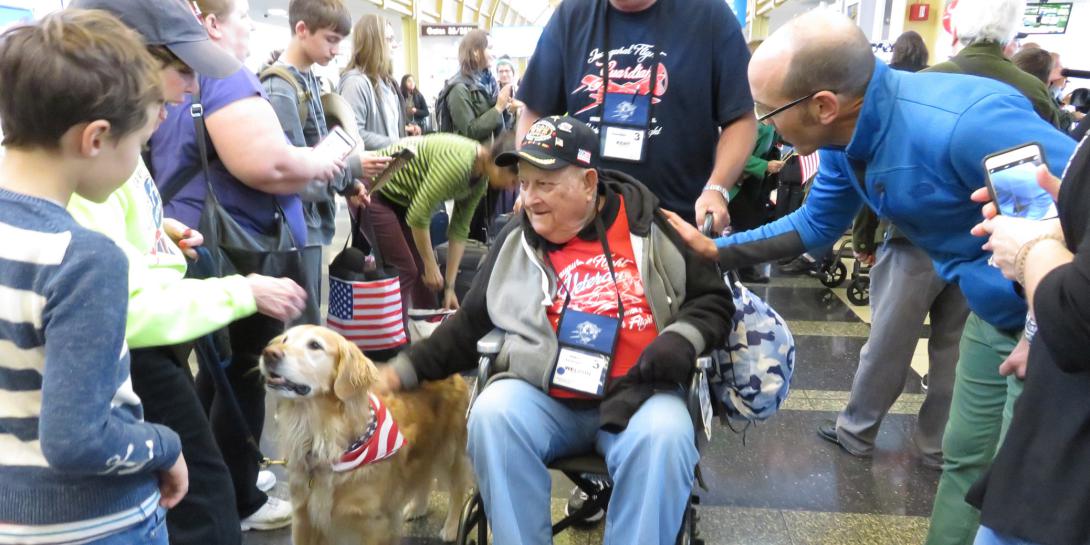
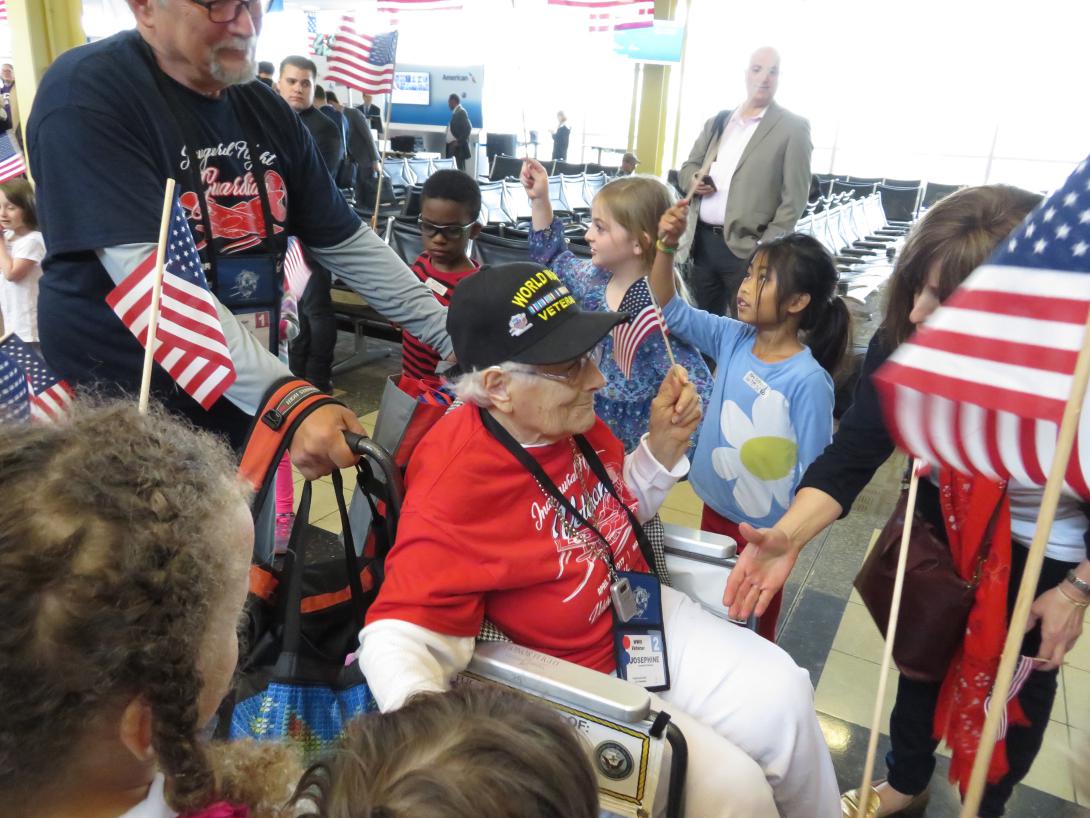
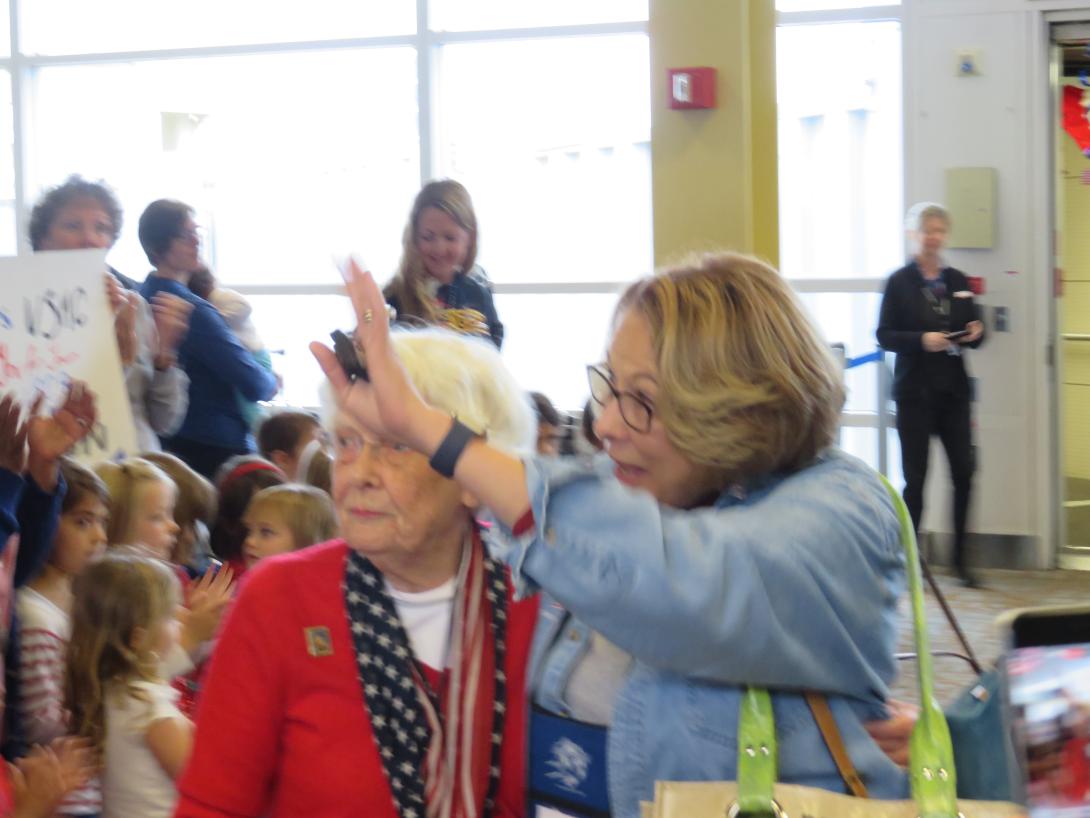
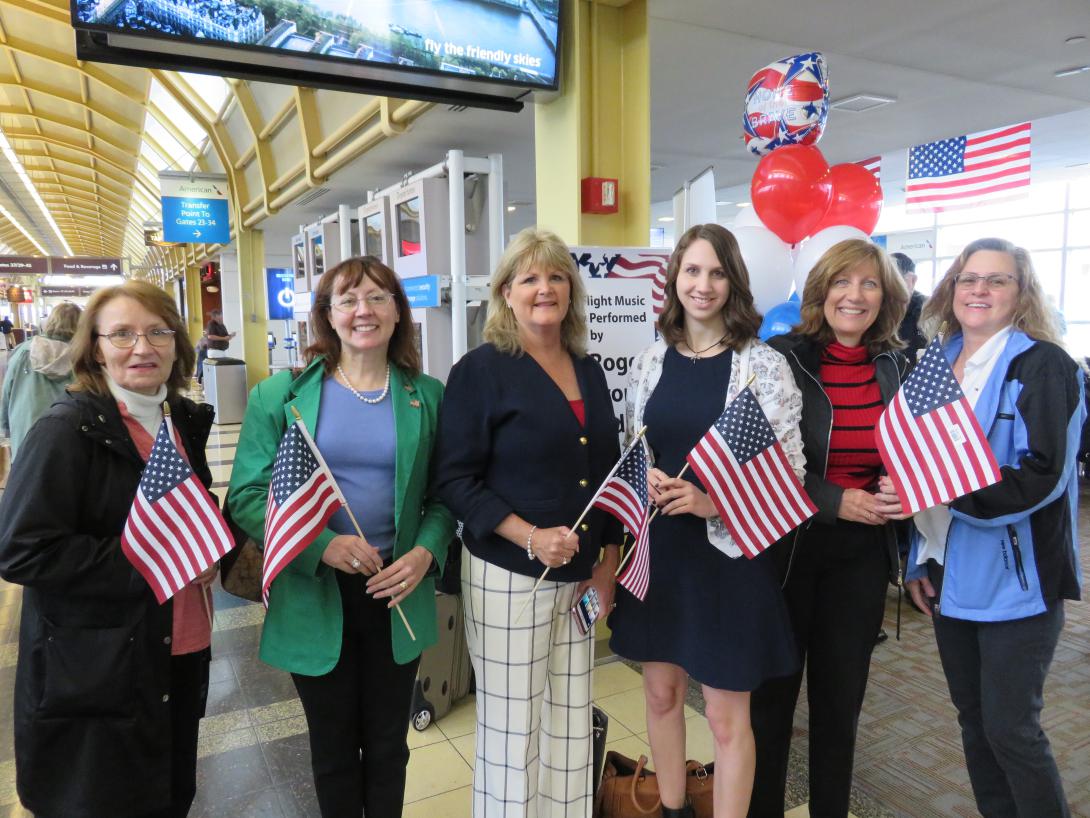
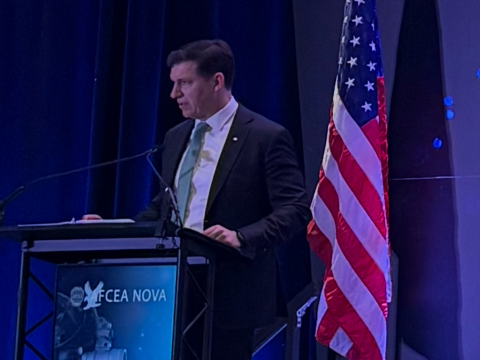
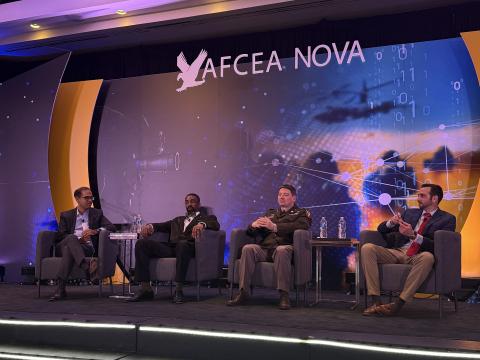
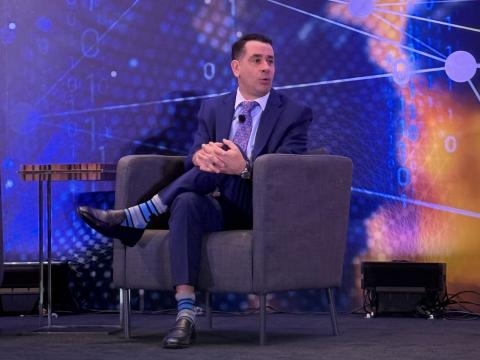
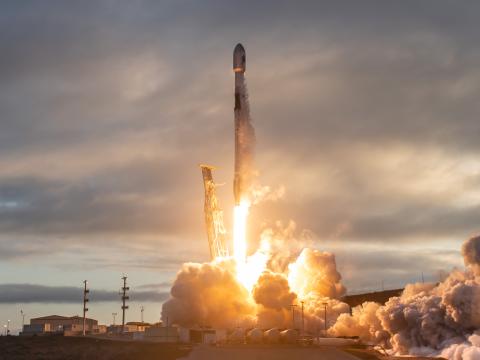
Comment
Vice Admiral Nancy Brown
Great comments by Maryann. Nobody knows Nancy better than me, I'm married to her. All should know that not only did Nancy spearhead Southern Illinois first Honor Flight she has also participated in over 50 graveside services as a member of our VFW ritual team. Finding a way to honor our veterans is extremely important to her and giving back is what she is all about
Veterans Honor Flight
Maryann such a touching article. Your debt, if there ever was one, is paid in full!
Honor Flight Coverage
Thank you so much for your coverage of this wonderful event. I am moved by your words and once again sorry I was not able to attend.
Comments